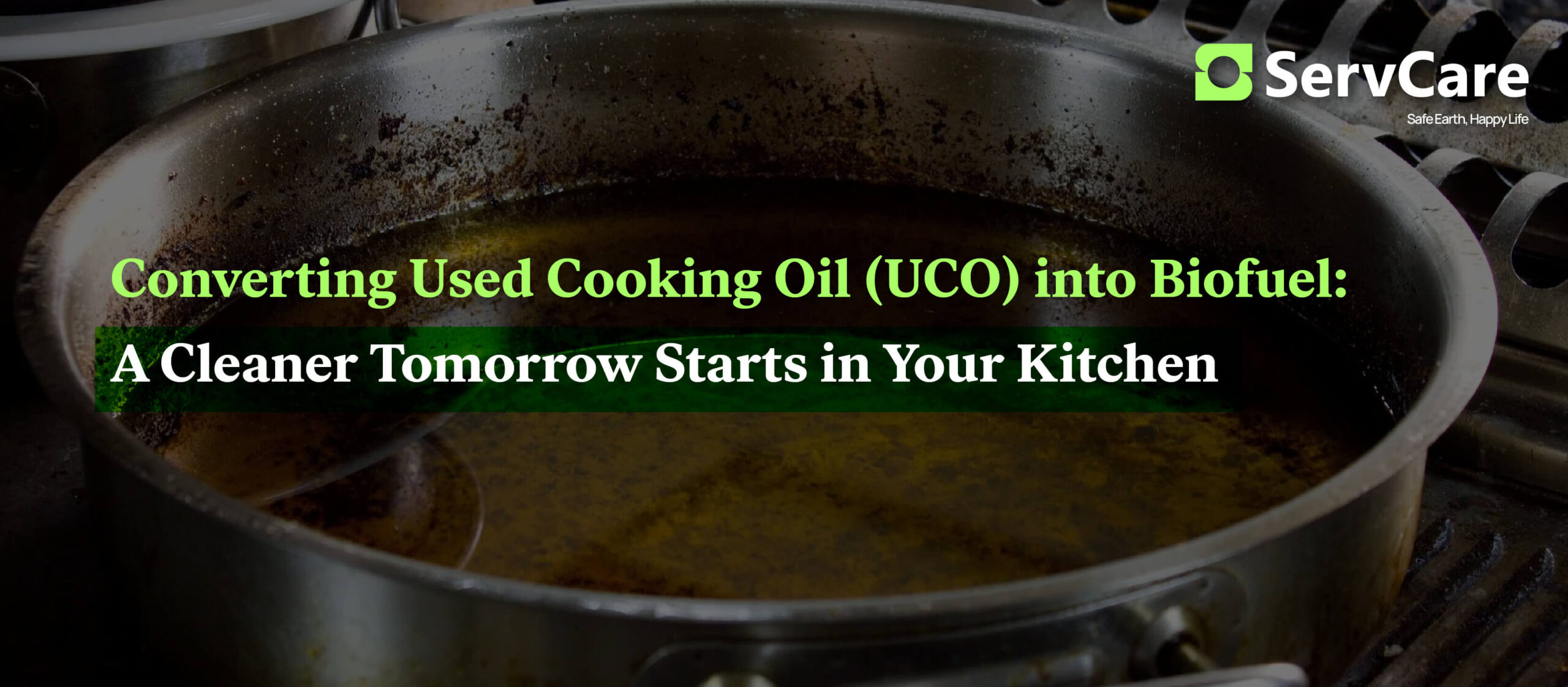
In a world striving toward sustainability, Used Cooking Oil (UCO) is emerging as an unexpected yet powerful resource. What was once considered a waste product can now be used to fuel vehicles, power industries, and reduce our carbon footprint. The conversion of UCO into biodiesel is not just a technological innovation—it’s an environmental necessity.
Global Context: How UCO Powers the Biofuel Revolution
Worldwide, over 20 million tonnes of UCO are generated annually. Countries like Germany, the USA, and China are leaders in converting UCO to biodiesel, a clean-burning alternative to fossil fuels.
- The European Union mandates that 10% of transportation fuel must come from renewable sources, including biodiesel from UCO.
- In the United States, the Renewable Fuel Standard (RFS) promotes biodiesel made from used oils, fats, and greases.
India’s UCO Landscape: A Hidden Opportunity
India consumes approximately 27 billion litres of cooking oil annually and generates about 3 million tonnes of UCO. Unfortunately, a significant portion is reused multiple times or illegally sold in the open market, leading to severe health risks.
To address this, the Food Safety and Standards Authority of India (FSSAI) launched the Repurpose Used Cooking Oil (RUCO) initiative, which encourages the collection of used cooking oil (UCO) from food businesses and its conversion into biodiesel.
- Permissible limit for Total Polar Compounds (TPC): According to FSSAI, cooking oil must be discarded when TPC > 25%.
- Beyond this point, it is unfit for human consumption and must be disposed of responsibly.
Maharashtra’s UCO Potential: A Game-Changer for Clean Energy
Maharashtra, being a food-rich and industrially advanced state, is a major generator of UCO. With lakhs of eateries, food processing units, and catering services, the state has the potential to produce more than 400,000 litres of UCO daily.
Unfortunately, most of this is either reused multiple times or illegally sold, contributing to:
- Adulteration in the food chain
- Health risks like heart disease, cancer, and digestive disorders
- Clogging of municipal drains and severe pollution if dumped
Health Hazards of Improper UCO Disposal
Repeated use or improper disposal of cooking oil leads to:
- Formation of harmful free radicals and carcinogens
- Increased trans fats that directly impact cardiovascular health
- Microbial contamination which can cause gastrointestinal diseases
When disposed into drains or soil:
- It contaminates water bodies
- Kills aquatic life
- Disrupts natural ecosystems
Why Restaurants, Food Chains & Manufacturers Should Switch to Responsible UCO Disposal
- By giving their UCO for biodiesel production, businesses can:
- Ensure compliance with FSSAI norms
- Avoid food adulteration-related penalties
- Improve brand image as eco-conscious businesses
- Contribute to India’s green fuel goals
- Potentially earn recognition or incentives from sustainability programs
How UCO is Converted into Biodiesel
- Collection: UCO is collected from restaurants, hotels, and food processors.
- Pre-treatment: The oil is filtered and treated to remove impurities.
- Transesterification: A chemical process using methanol converts oil into methyl esters (biodiesel) and glycerine (by-product).
- Purification: Biodiesel is refined and made ready for use in vehicles or industries.
What Happens to Biodiesel Produced from UCO in India?
- Blending with Diesel
- Biodiesel is not used directly as a 100% fuel (B100) in India for public or retail transport use.
- Instead, it is blended with regular diesel — usually in proportions like B5 (5% biodiesel), B10, or up to B20 — depending on the current blending policy.
- This blended fuel is then used in government fleets, railways, public transport, and some industrial applications.
- Supplied to Oil Marketing Companies (OMCs)
- Authorised biodiesel manufacturers like Munzer Bharat supply the biodiesel to Oil Marketing Companies like:
- Indian Oil Corporation (IOCL)
- Bharat Petroleum (BPCL)
- Hindustan Petroleum (HPCL)
- These OMCs then blend biodiesel with conventional diesel and use it in:
- Government-run vehicles
- State transport buses
- Railways (on certain diesel routes)
- Defence and other public-sector operations
- As per the National Bio-Energy Policy
- Under the National Bio-Energy Policy, India aims to achieve:
- 5% biodiesel blending by 2030
- Promote waste-to-energy initiatives like UCO-to-biodiesel
Why isn’t B100 (100% Biodiesel) allowed for Direct Use?
- Engine Compatibility Issues: Most diesel engines in India are not certified or modified to run on pure biodiesel.
- Fuel Standards & Quality Control: Government regulations require fuel to meet BIS standards. Unregulated biodiesel sales could lead to poor quality, engine damage, or emissions issues.
- Taxation & Distribution Control: Fuel distribution is tightly regulated for safety, quality, and revenue reasons.
The Bigger Picture: UCO Biodiesel Supports National Sustainability Goals
Though not used directly by the public, biodiesel made from UCO helps reduce India’s crude oil imports, cuts emissions, and promotes circular economy practices, especially in states like Maharashtra.
How ServCare Supports Restaurants and Food Businesses
At ServCare, we act as an authorised aggregator for UCO, partnering with licensed biodiesel producers like Munzer Bharat.
Here’s how we help:
- Doorstep Collection of UCO in safe, sealed containers
- FSSAI-compliant handling and documentation
- Traceable disposal with certification
- Awareness & training sessions for kitchen staff
- Contribution to sustainable fuel goals and circular economy
Whether you run a small kitchen or a large restaurant chain, disposing of UCO through ServCare is safe, legal, and impactful.
The Road Ahead: From Frying Pans to Fuel Tanks
Used Cooking Oil is no longer just a waste product—it’s a resource waiting to be tapped. With growing awareness, supportive policies, and responsible businesses, India can become a global leader in UCO-based biofuel.
By joining hands with ServCare, you’re not just disposing of oil—you are fuelling a cleaner tomorrow.
Want to start responsible UCO disposal at your restaurant or food business?
Contact ServCare today or WhatsApp us at 9069537537. Visit: www.servcare.com
